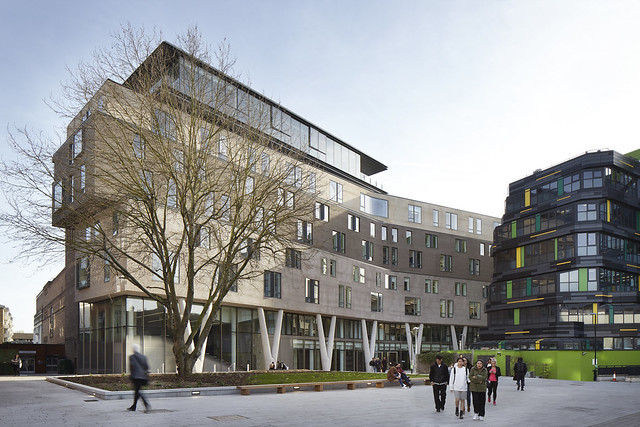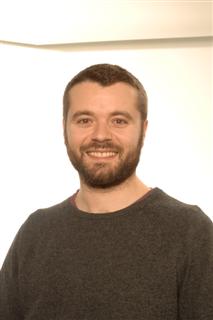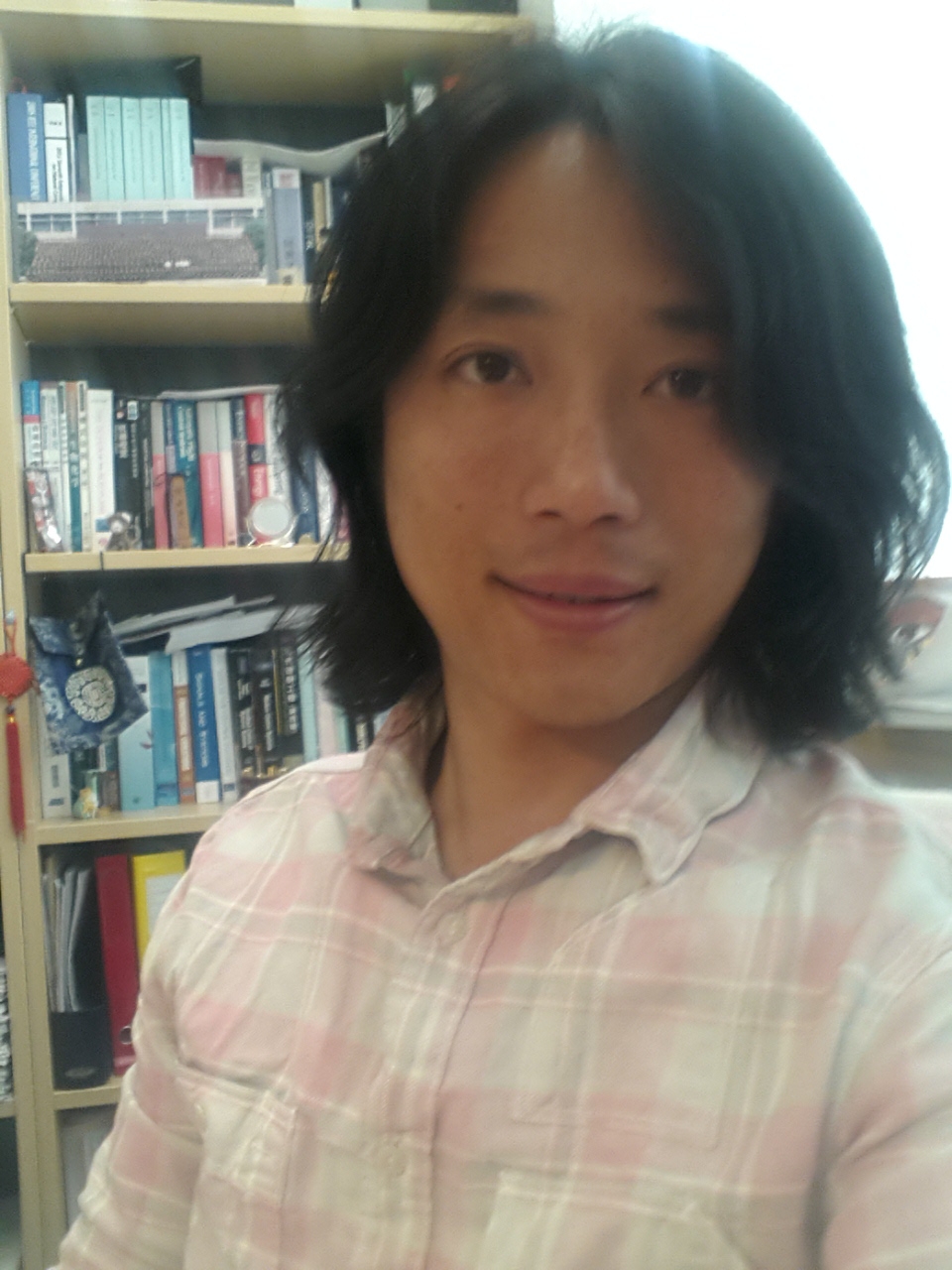Study options
- Starting in
- September 2025
- Location
- Mile End
- Fees
- Home: £12,850
Overseas: £29,950
EU/EEA/Swiss students
What you'll study
Enhance your expertise in chemical and process engineering to become a key problem-solver, equipped to tackle current and future challenges in engineering industries.
Our curriculum emphasises the importance of thinking 'outside the box,' integrating business, regulatory, and societal perspectives into your engineering education. By engaging with real-world, current engineering problems, you'll learn to incorporate new perspectives and develop creative solutions.
You will undertake compulsory modules that cover essential chemical engineering principles and practices, as well as the design of safe, sustainable and profitable processes. You'll also choose from a variety of elective modules, to tailor your studies to your career aspirations and interests.
You'll complete a large-scale individual research project, embedded within one of our renowned research centres, allowing you to approach problems from an interdisciplinary perspective, while maintaining a strong chemical engineering focus.
Structure
- Five compulsory modules
- Three elective modules
- Year-long research project module
Compulsory/Core modules
This module will introduce several dimensions of ethical design, considering the system life cycle including the impact of end-of-life. Elements incorporating ethics into effective system design using a modern set of theoretical frameworks including circular economy, planetary boundaries and environmental life cycle assessment will be considered. The consequential impact of large scale technology shifts to guard against replacing one problem for another will be covered. The role of meeting and contributing to environmental regulation and policy will be explored and an 'ethical cost benefit analysis' will be introduced that internalises otherwise external environmental costs. Decision making under a complex array of economic and environmental objectives will be considered via multi-criteria decision analysis.
This module will focus on electrochemical energy storage principles, energy storage materials, device design and manufacturing, and chemical engineering processes taking place in these type of technologies. It will address fundamental aspects of electrochemistry associated with electrochemical energy storage systems. This module will give the students a thorough knowledge of the importance of energy storage in the field of Sustainable Energy Engineering and provide them with an advanced understanding of key processes in devices such as batteries and supercapacitors, and their important role in the decarbonisation of the power sector.
To be a successful industry leader, it is important to be able to efficiently manage various types of engineering projects. This module offers essential concepts, tools and techniques of project management, presented through engaging case studies. By understanding the concepts and analytical frameworks of project management, students will acquire practical knowledge and skills in project management, as well as the ability to conduct 'project risk analysis and management' for analysing recent or ongoing large-scale infrastructure projects.
This module builds on water treatment theory and practice covered at undergraduate level to develop advanced knowledge of the engineering challenges of modern-day water treatment. Covering both wastewater and drinking water applications, the module will cover the theory and application of several advanced water treatment processes that are part of the water cycle, explore hands-on separation processes in the lab, and move towards modelling and design of sustainable water treatment systems to comply with regional and international regulations. This module aims at preparing the next generation engineers focusing on the design of future-proof water treatment processing plants.
This module builds on undergraduate process safety taught material to place our chemical engineering students at the forefront of Process Safety in the chemicals and energy industries. Students will learn about advanced safety concepts and methods such as Quantitative Risk Assessments and consequence modelling, and incorporate complex dynamics into to safe design of chemical plants and management structures.
The module is an intensive research module for the summer semester. It is designed to develop the research skills of the student and enable them to develop key skills in research in a chemical engineering area.
Elective modules
This module will give students a thorough understanding and knowledge of state-of-the-art technologies for macromolecular engineering. It will focus on key areas for industrial applications and help students draw structure-property relationships and link these to synthetic approaches. Specifically, macromolecular engineering in the fields of high performance materials, tissue engineering and biotechnologies, sensors, materials for energy production and in the micro-electronics area will be discussed and applied. The module will cover advanced polymer synthesis techniques and their application to the design of conjugated polymers, the application of these concepts to macromolecular engineering in microfabrication and 3D printing and the design of biomaterials and hydrogels, and their biofunctionalisation. The module will present state-of-the-art platforms for solid phase synthesis of peptides, oligonucleotides, and recombinant protein production.
Deriving insight from data is essential to problem-solving innovation in modern engineering disciplines. To gain this insight, the data needs to be understood and appropriately interpreted. In this module, you will develop tools, systems, and processes to enable the application of artificial intelligence in real-world contexts. You will learn probability theory and the transformation of data from a high- into a low-dimensional space. You will develop statistical thinking in order to design data collection, derive insights from visualising data, obtain supporting evidence for data-based decisions and construct models for predicting future trends from the data. You will learn techniques applied to your discipline for unsupervised and supervised learning and apply them to automating routine engineering tasks, and to apply machine learning approaches to complex and critical systems in a holistic and system-oriented way.
This module uses the classical V-model to provide a guide to the characteristics of systems and fundamental principles of systems engineering. It addresses how a systems approach can be applied to one or more engineered systems contexts as a part of managed interventions into complex real world problems. Topics include stakeholder analysis, requirements definition, system architecture and concept generation, trade-space exploration and concept selection, design definition and optimisation, system integration and interface management, system safety, verification and validation, commissioning and operations and related/emerging disciplines/topics in Systems Engineering.
This module will explore the role of advanced nanocomposites in modern engineering. It will cover the micromechanics of these materials with a particular focus on particulate micromechanics and the role of the filler shape, size and morphology. A widerange of nanomaterials will be introduced, and methods for manufacturing these nanocomposites will be explored. Nanocomposites have a huge range of applications, and this module will explore advanced nanocomposites for (i) mechanical and structural applications; (ii) electrical applications; (iii) thermal applications; (iv) barrier membrane applications.
For students who aspire to become industry leaders and entrepreneurs in the digitalisation era, this module offers knowledge on interpreting the phenomenon of digitalisation and the digital economy in terms of technology, regulation, and the consumer adoption process. It also provides insights on analysing rapidly evolving digital businesses and developing successful strategies for traditional businesses seeking to transform digitally. Specifically, this module allows students to develop a deep understanding of the specific strategies and underlying objectives of highly successful digital companies.
Solar Energy is an important aspect of Sustainable Energy Engineering. The understanding of key processes within solar energy will provide students with the knowledge needed to progress further within relevant industries within Solar Energy. The module will focus on the following aspects of solar energy: solar insolation; physical background for semiconductor materials; photovoltaic devices and applications; photocatalysis; solar thermal technologies.
This module provides an insight into the physicochemical properties, production and utilisation processes and economics of the renewable and carbon neutral/free fuels. These include liquid and gaseous biofuel, biomass driven fuels (e.g. bio-syngas), hydrogen and hydrogen carriers. Renewable fuel technologies, at different levels of maturity, are discussed and the relevant sustainability issues are identified.
Please note that all modules are subject to change.
Assessment
We will assess you in a variety of ways, with a particular focus on authentic assessment that reflects demonstration of knowledge in real-world environments. You can expect a variety of different assessment methods to be used, including:
- Written assessment (exams, project reports)
- Practical assessment (laboratory/workshop practicals)
- Oral assessment (presentations and vivas)
Research project
The research project forms a major component of your degree. Individual projects are undertaken throughout the year (including the summer months), under the supervision of an academic member of staff, with whom there are weekly consultancy meetings. These will allow you to report on your progress, discuss research and design issues, and plan your future work.
Teaching
The School of Engineering and Materials Science conducts high-quality research in a wide range of areas. This research feeds into our teaching at all levels, ensuring you share in the latest knowledge.
Lecturers on this programme are regularly invited to speak to the media about key issues in chemical engineering and sustainable energy.
You will take part in a range of in-person learning activities, such as problem-solving classes, workshops, lectures and seminars. Study materials will also be provided for self-directed learning.
You will be assigned an Academic Advisor who will guide you in both academic and pastoral matters throughout your time at Queen Mary.
Where you'll learn
Facilities
You'll have access to our dedicated Chemical Engineering Lab, as well as use of specialised equipment including:
- Algae production equipment
- Three phase separator
- Fluidised bed reactor
View our facilities using our virtual tour.
Campus
Teaching is based at the School of Engineering and Materials Science on Queen Mary’s main Mile End campus, one of the largest self-contained residential campuses in the capital.
Researchers within the School also have access to other specialised research facilities elsewhere at Queen Mary, such as Nanoforce and NanoVision.
Our Mile End campus is 15 minutes from Central London by tube, where you will have access to many of the University of London’s other facilities, such as the Senate House library.

About the School
School of Engineering and Materials Science
The School of Engineering and Materials Science (SEMS) was the first School in the UK to open a materials department and we’ve been at the forefront of international engineering and materials research ever since.
The internationally competitive work of our research groups pushes the boundaries of science: we’ve been awarded substantial grants to explore the creation of technology to capture energy from sea waves and develop artificial kidneys to avoid animal testing. Our research is even celebrated on stamps!
You will be taught by our internationally recognised staff and will have access to our outstanding facilities.
In the 2021 Research Excellence Framework (REF), the School ranked 7th overall in Engineering and 2nd for the measure of the quality of our research outputs. We are in the top 120 international institutions for engineering (THE World University Rankings, 2022). We are part of both the University of London and the Russell Group.
Career paths
Graduates from our MSc in Advanced Chemical Engineering will be well-equipped to pursue roles in various areas, including:
- Process engineering industries, such as materials, toiletries and food production
- Safety engineering
- Engineering project management
- Renewable energy and sustainable materials
Our strong links with employers, including connections to Waternet, the IChemE and safety engineering firms, provide excellent opportunities for networking and gaining industry knowledge.
We have an active Industrial Advisory Board, who provide real-world case studies, deliver guest lectures and engage with student research projects. We run an Industrial Liaison Forum twice per year, where we invite our collaborators, Advisory Board and alumni to campus to engage with current students.
- 95% of Engineering and Materials Science postgraduates are in employment or study 15 months after graduation (GOS, 2021/22)
- 89% of those postgraduates are in highly skilled roles (GOS, 2021/22)
Fees and funding
Full-time study
September 2025 | 1 year
- Home: £12,850
- Overseas: £29,950
EU/EEA/Swiss students
Conditional deposit
Home: Not applicable
Overseas: £2000
Information about deposits
Queen Mary alumni can get a £1000, 10% or 20% discount on their fees depending on the programme of study. Find out more about the Alumni Loyalty Award
Funding
There are a number of ways you can fund your postgraduate degree.
- Scholarships and bursaries
- Postgraduate loans (UK students)
- Country-specific scholarships for international students
Our Advice and Counselling service offers specialist support on financial issues, which you can access as soon as you apply for a place at Queen Mary. Before you apply, you can access our funding guides and advice on managing your money:
Entry requirements
UK
Degree requirements
A 2:1 or above at undergraduate level in Chemical Engineering or similar (Oil and Gas Engineering, Petroleum Engineering, Chemistry, Applied Chemistry, Biochemical Engineering, etc).
Other routes
Applicants with a good 2:2 degree (55% or above) will be considered on an individual basis.
Find out more about how to apply for our postgraduate taught courses.
International
English language requirements
The English language requirements for our programmes are indicated by English bands, and therefore the specific test and score acceptable is based on the band assigned to the academic department within which your chosen course of study is administered. Note that for some academic departments there are programmes with non-standard English language requirements.
The English Language requirements for entry to postgraduate taught and research programmes in the School of Biological and Behavioural Sciences falls within the following English band:
Band 4: IELTS (Academic) minimum score 6.5 overall with 6.0 in each of Writing, Listening, Reading and Speaking
We accept a range of English tests and qualifications categorised in our English bands for you to demonstrate your level of English Language proficiency. See all accepted English tests that we deem equivalent to these IELTS scores.
Visas and immigration
Find out how to apply for a student visa.
If you're an international student you'll need to get ATAS (Academic Technology Approval Scheme) approval, which will extend the visa application process by 2-4 weeks. Find out more about ATAS









